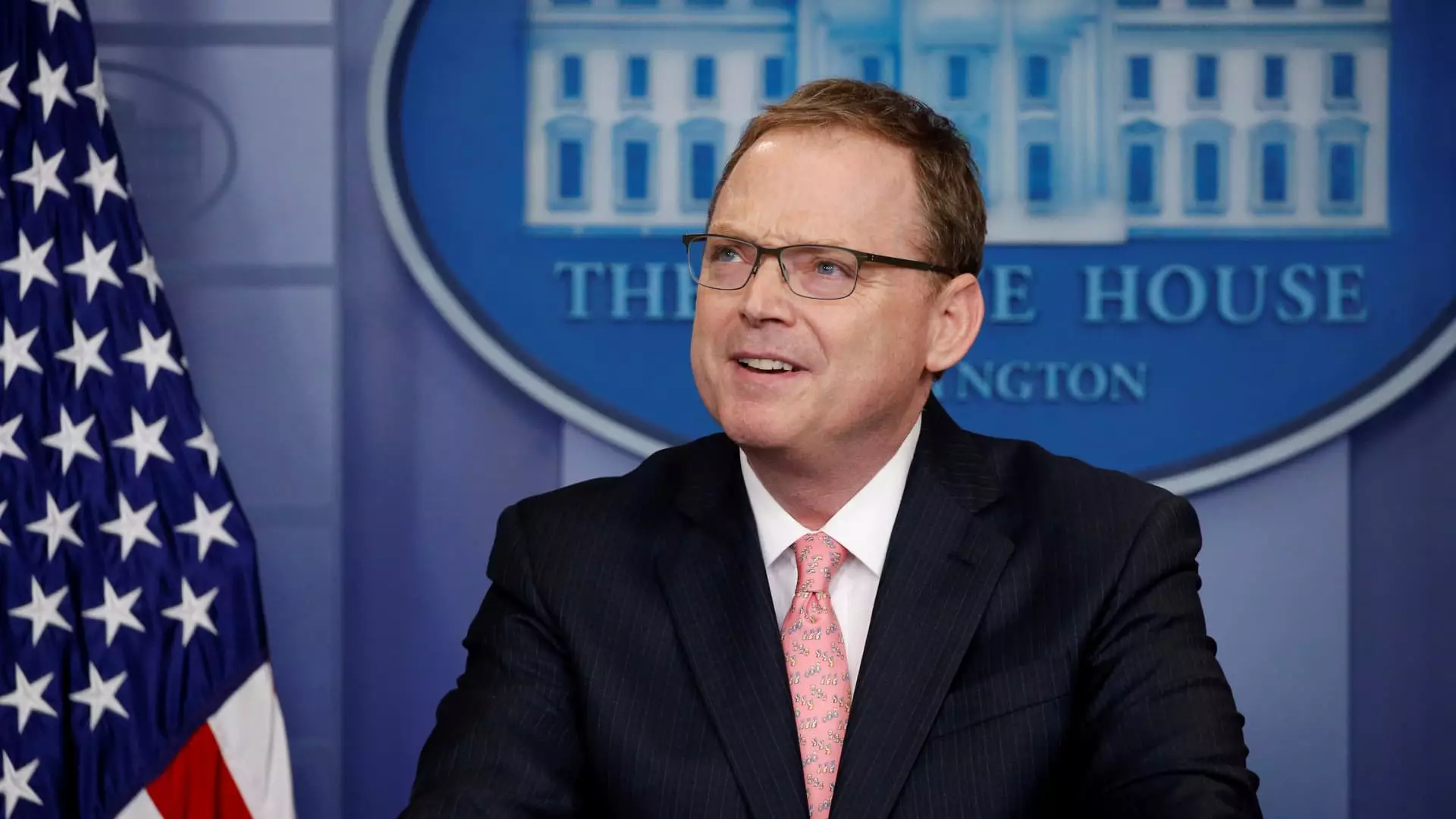In a strategic move that could define his incoming administration’s economic policies, President-elect Donald Trump has appointed Kevin Hassett to head the National Economic Council (NEC). This pivotal appointment places Hassett at the heart of discussions that will shape the future of various economic sectors, including trade, tax policy, and deregulation. With a keen understanding of fiscal policy gained from his previous tenure as chairman of the Council of Economic Advisers, Hassett brings a wealth of experience to the table as Trump seeks to forge a robust economic team.
Alongside Hassett’s appointment, Trump has chosen Jamieson Greer to be the U.S. Trade Representative. This dual appointment confirms Trump’s intention to prioritize trade issues as a cornerstone of his economic agenda. During his first term, Hassett actively supported the administration’s initiatives on corporate tax cuts and defended controversial tariffs that sought to protect American manufacturing. Critics of these policies argued that they could lead to an escalation of trade tensions, yet supporters claimed they were necessary for the nation’s economic sovereignty.
Hassett’s ongoing collaboration with influential figures such as Jared Kushner, particularly on immigration matters, highlights the interconnected nature of Trump’s policy decisions. The two worked on initiatives including the end of sanctions waivers for nations purchasing Iranian oil, illustrating a firm stance on both economic and foreign policy issues.
As Trump prepares for his inauguration on January 20, he has reaffirmed his intent to escalate tariffs on foreign imports. This includes a substantial 10% levy on all goods from China and an alarming 25% on products from Canada and Mexico. Such actions are poised to alter the landscape of international trade agreements, particularly the North American Free Trade Agreement (NAFTA), which has been a topic of heated debate. Trump’s rationale for the tariffs draws from concerns about illegal immigration and the drug trade, further intertwining economic decisions with issues of national security.
The repercussions of these tariffs could be significant, potentially leading to retaliatory measures from affected countries. Economists express concern that heightened tariffs may phase out the benefits of existing trade agreements, leading to price increases for American consumers and disruptions in supply chains. As Trump and his advisors discuss these strategies, the administration must consider the fine balance between asserting economic independence and fostering international relations.
In addition to Hassett and Greer, Trump’s contemplated appointment of Scott Bessent, a seasoned expert from the hedge fund world, as Treasury Secretary could signal a shift towards a more market-centric approach. The convergence of these appointments points to an administration favoring aggressive fiscal policies aimed at promoting growth within the domestic economy while navigating a complex global market.
Overall, the assemblage of Trump’s economic team reflects a return to some of the administration’s previous strategies while also embracing new, potentially more aggressive approaches. As the economic landscape prepares for transformation, stakeholders across sectors will be watching closely to determine how these policies will play out in real-time, shaping the flow of trade, investment, and economic collaboration for years to come.

